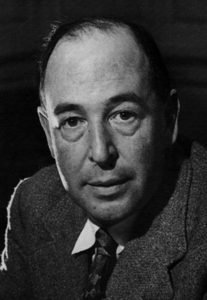The Conversion of C.S. Lewis
(Written by Pastor Chris)
 One of the great heroes of Christian faith in the last century was C.S. Lewis, whose words still feed the souls of many today. Some may not know that while Lewis was born into a family of faith, by the age of fifteen he had rejected it all and become a convinced atheist. That atheism even led him, temporarily, into the pursuit of the occult and other mystery religions while studying at University. Later, having now graduated to a professorship at Oxford, he was engaged directly by Christian members of the faculty like JRR Tolkien and author’s like G.K. Chesterton. The more he allowed himself to enter into meaningful conversations on this most important topic, the more he could feel the approach of God. Finally, God’s approach became so imminent that Lewis had no recourse but to bow. He tells the story of his conversion this way:
One of the great heroes of Christian faith in the last century was C.S. Lewis, whose words still feed the souls of many today. Some may not know that while Lewis was born into a family of faith, by the age of fifteen he had rejected it all and become a convinced atheist. That atheism even led him, temporarily, into the pursuit of the occult and other mystery religions while studying at University. Later, having now graduated to a professorship at Oxford, he was engaged directly by Christian members of the faculty like JRR Tolkien and author’s like G.K. Chesterton. The more he allowed himself to enter into meaningful conversations on this most important topic, the more he could feel the approach of God. Finally, God’s approach became so imminent that Lewis had no recourse but to bow. He tells the story of his conversion this way:
“You must picture me alone in that room in Magdalen (Oxford), night after night, feeling, whenever my mind lifted even for a second from my work, the steady, unrelenting approach of Him whom I so earnestly desired not to meet. That which I greatly feared had at last come upon me. In the Trinity Term of 1929 I gave in, and admitted that God was God, and knelt and prayed: perhaps, that night, the most dejected and reluctant convert in all England. I did not then see what is now the most shining and obvious thing; the Divine humility which will accept a convert even on such terms. The Prodigal Son at least walked home on his own feet. But who can duly adore that Love which will open the high gates to a prodigal who is brought in kicking, struggling, resentful, and darting his eyes in every direction for a chance of escape? The words “compelle intrare,” compel them to come in, have been so abused by wicked men that we shudder at them; but, properly understood, they plumb the depth of the Divine mercy. The hardness of God is kinder than the softness of men, and His compulsion is our liberation.” C.S. Lewis, Surprised by Joy: The Shape of My Early Life
Lewis’ “restlessness” prior to this experience was only attributable to the simple fact that he was not yet converted. Now, this may not be the reason for the restlessness that most of us feel, but we must pay homage to the fact that it could be the reason for some. Unless we are truly converted, we can never be truly at rest!
